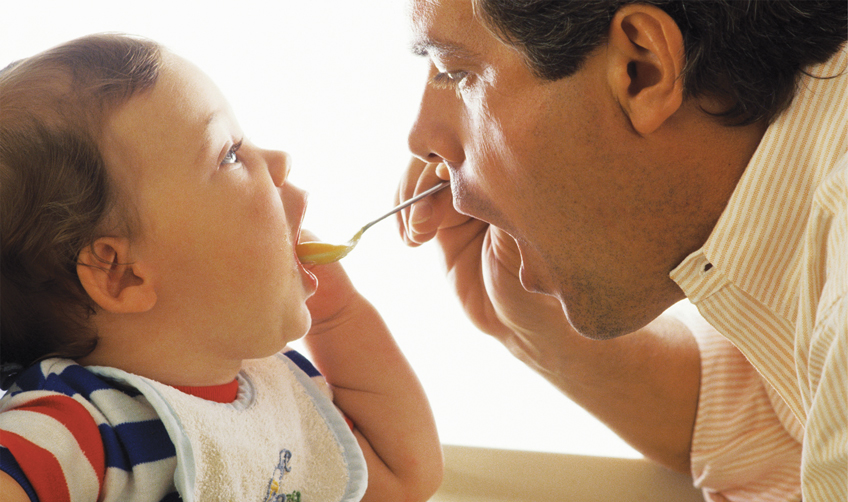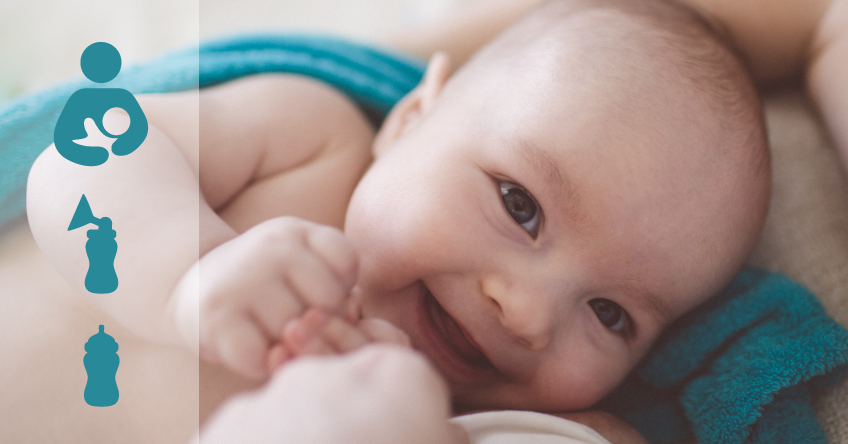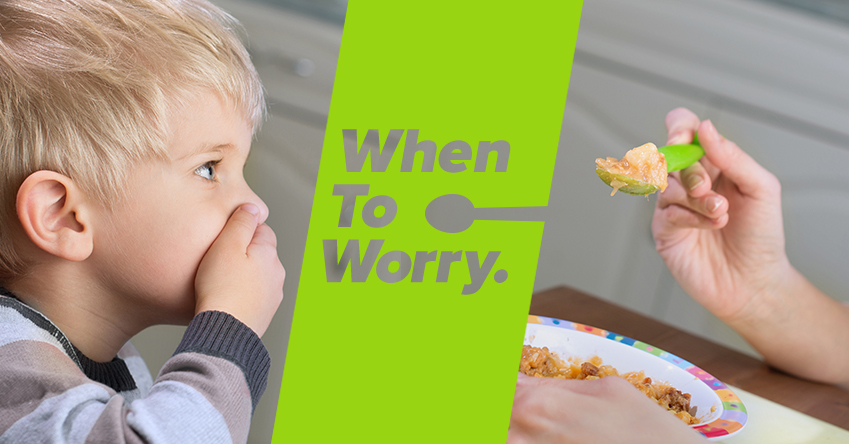Breastmilk or formula is the only food your baby needs until he is about 6 months old. Then you can start to give him pureed or mashed food. When your baby is hungry and you feed him promptly and lovingly, he feels secure. Over time, he will learn to feed himself and be proud of his new skills. And he will eat more foods and join in family meals.

Your Baby Shows He Is Ready
You can try solid food when your baby:
- Can sit up.
- Can close his mouth around a spoon.
- Can swallow food, instead of spitting it out.
- Watches you eat and opens his mouth or reaches for the food.
Your Baby’s First Solid Food (6 to 8 Months)
When your baby is ready, start with small spoonfuls of cereal or pureed vegetables, fruit or meat. Try one new food at a time. Try it for a few days to see how your baby does with it. After 6 months, you can give your baby real juice. But give no more than ¼ cup a day and mix it with water. Avoid juice drinks. They have added sugar.
Finger Foods, Cups and Spoons (9 to 12 Months)
Your baby can begin to eat finely chopped meat, cheese, cooked vegetables and fruit. Do not add salt, sugar or spices. He still needs breastmilk or formula. But do not give him more than 3 bottles or cups (24 ounces) a day. If he drinks more, it can take away his appetite for solid food.
Weaning
From breastfeeding: Try to breastfeed for at least a year. There are benefits to breastfeeding longer, for up to 2 years or more. When you wean your baby, go slowly. First, drop midday feedings. Then drop morning feedings. Last, drop evening feedings.
From the bottle: Start weaning at 12 to 18 months. To help her be ready, start to give her formula, water or juice from a sippy cup at 6 to 9 months.
- For more information on weaning, call La Leche League.
THINGS YOU CAN DO
 Feeding Your Baby Safely
Feeding Your Baby Safely
- Be sure to test how hot the food or liquid is before you give it to your baby. Do not heat milk or food in the microwave. It does not heat evenly and can burn your baby.
- Wash fruits and vegetables.
- Do not put cereal in a baby bottle. It can cause choking.
- Do not give your baby honey before she is 1 year old. They can poison a baby.
- Do not use cow’s or goat’s milk instead of breastmilk or formula. They do not have the nutrition your infant needs.
To Prevent Choking
- Make sure your baby is safely seated before you feed him.
- Keep an eye on him while he is eating. If he chokes, he cannot make noise to let you know.
- Cut food into small pieces. Remove bones, seeds and pits.
- Cut grapes and hot dogs into small strips.
- Avoid tough foods like large dried fruit or pieces of meat.
- Avoid hard foods like raw carrots, nuts and popcorn.
- Take a first aid class so you know what to do if your child is choking. Contact your local American Red Cross or American Heart Association chapter.
To Help Prevent Diaper Rash
Diaper rash is most common between 8 and 10 months, when your baby starts to eat more solid food.
- Change his diaper often to keep him as dry as possible.
- Clean his bottom with a wipe or a damp, soft cloth.
- If he gets diaper rash, change his diaper more often. Clean his bottom with warm water and pat it dry.
- To protect his skin, apply petrolatum or zinc oxide.
- If he has blisters or open sores, call the doctor.
The First Things First Parent Kit was developed in partnership with Health Research for Action/UC Berkeley. © 2018 The Regents of the University of California. Additional video, graphic and other content © 2018 First Things First. All rights reserved.



